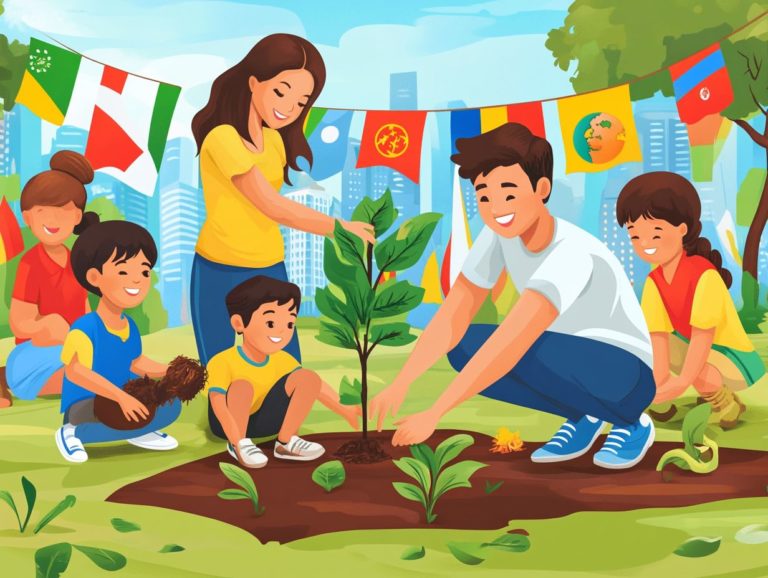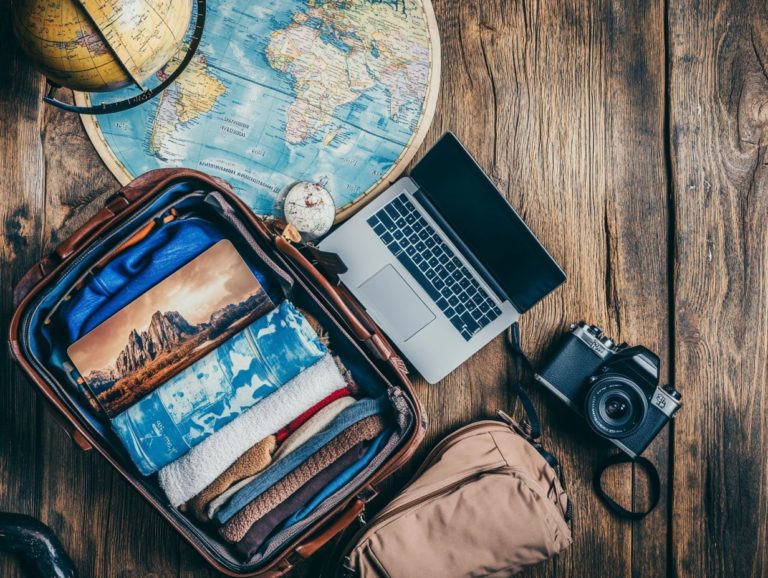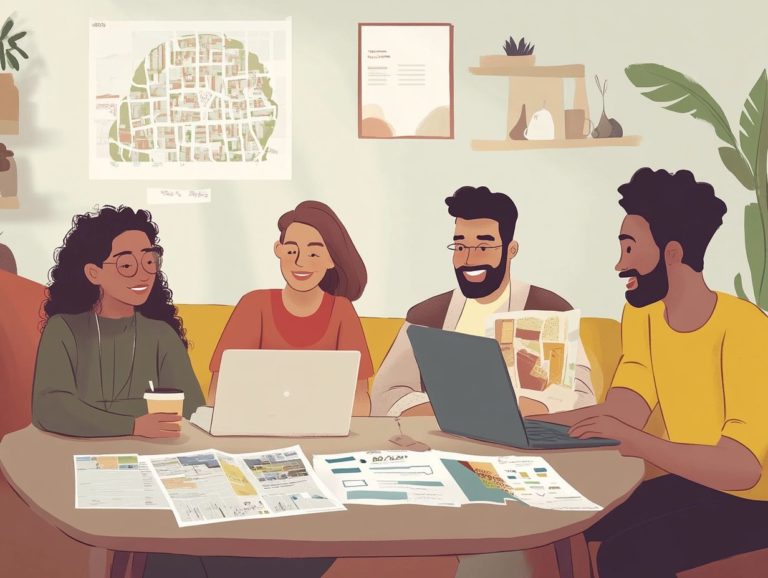What Should I Know About Local Customs?
When you venture into new places, grasping local customs can significantly enrich your experience and elevate your interactions.
From greetings and gestures to dining etiquette, each culture has unique practices that beautifully reflect its values and history.
Recognizing these customs not only shows respect but also nurtures genuine connections with locals.
This guide underscores the importance of cultural sensitivity and outlines common customs around the globe. It also offers tips on how to adapt and thrive in diverse environments.
Whether you’re preparing for a trip or simply curious about other cultures, a captivating journey into local customs awaits you.
Contents
Key Takeaways:
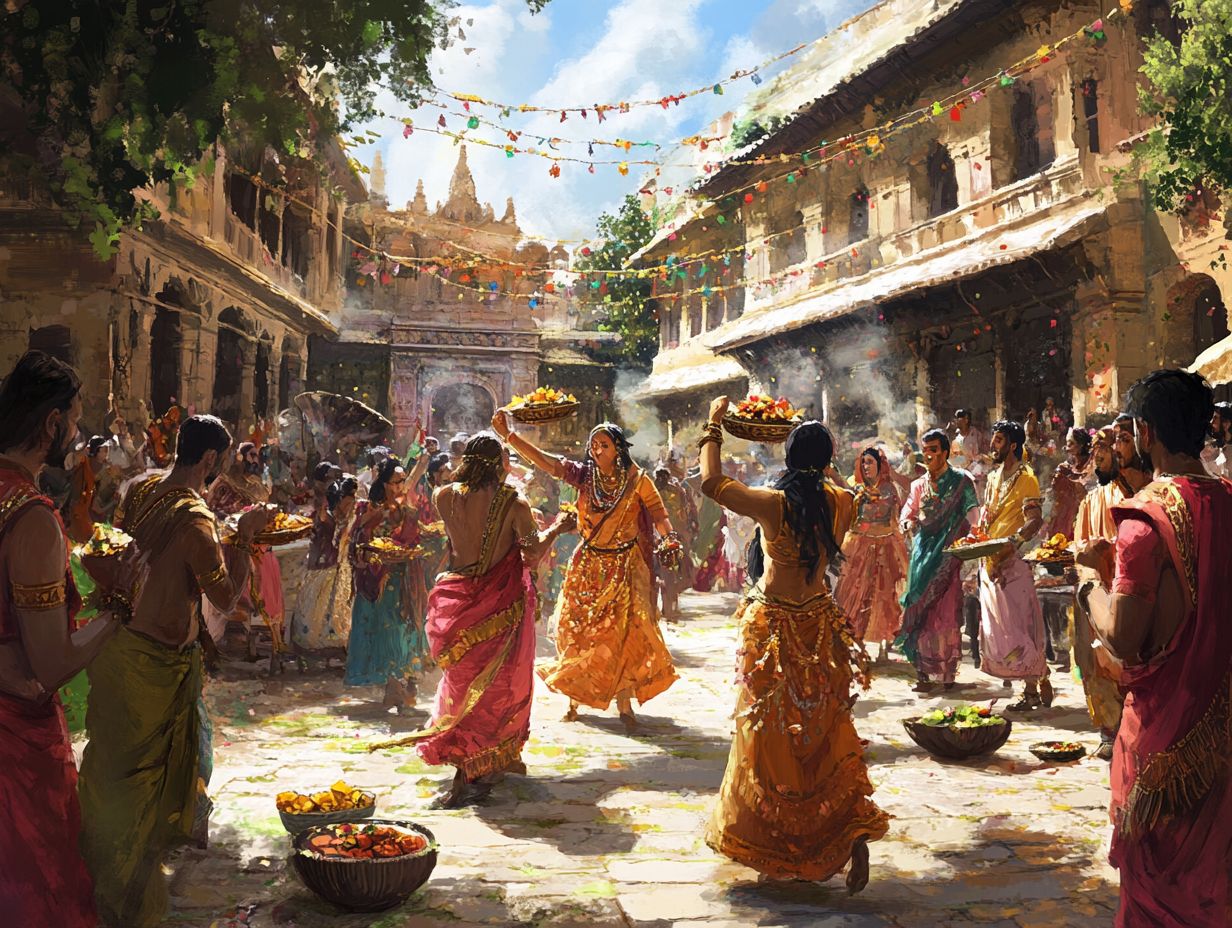
- Respect and cultural sensitivity are crucial when interacting with local customs.
- Researching and understanding local customs before traveling can help avoid unintentional cultural faux pas.
- Adapting to and navigating cultural differences can enhance your travel experience and build connections with locals.
Understanding Local Customs
Understanding local customs is vital for anyone aiming to fully immerse themselves in a new culture, including what to know about local cuisine. It helps navigate the nuances of social interactions.
By familiarizing yourself with cultural norms, social etiquette, and unique traditions, you can elevate your travel experiences and forge meaningful connections.
This journey not only helps you adapt your behavior but also nurtures cultural fluency, paving the way for respectful interactions across diverse cultural landscapes.
Observing locals and embracing their customs opens the door to enriching experiences and deeper insights, essential in our interconnected world.
What are Local Customs?
Local customs are the distinct cultural practices, traditions, and social behaviors that define a specific community or society. They provide fascinating insights into the values, beliefs, and historical narratives that shape each culture.
For example, in Japan, bowing serves as a heartfelt greeting that conveys respect. In France, a light kiss on the cheeks is a customary way to greet friends. Understanding these nuances enhances your cultural awareness and social interactions.
In India, the practice of removing shoes before entering someone s home reflects deep values of cleanliness and respect, showing how local customs influence interpersonal relationships.
By immersing yourself in these practices, you not only enrich your social skills but also cultivate a sense of belonging in a diverse world.
Why It’s Important to Know Local Customs
Understanding local customs is essential for cultivating cultural sensitivity and respect. This knowledge is the foundation for effective communication and relationship building.
By grasping the nuances of social etiquette and appropriate behavior, you can enhance your personal interactions and minimize misunderstandings. Such cultural awareness helps you navigate intricate social landscapes, allowing you to adapt your behavior and honor the traditions that define each community’s identity.
Cultural Sensitivity and Respect
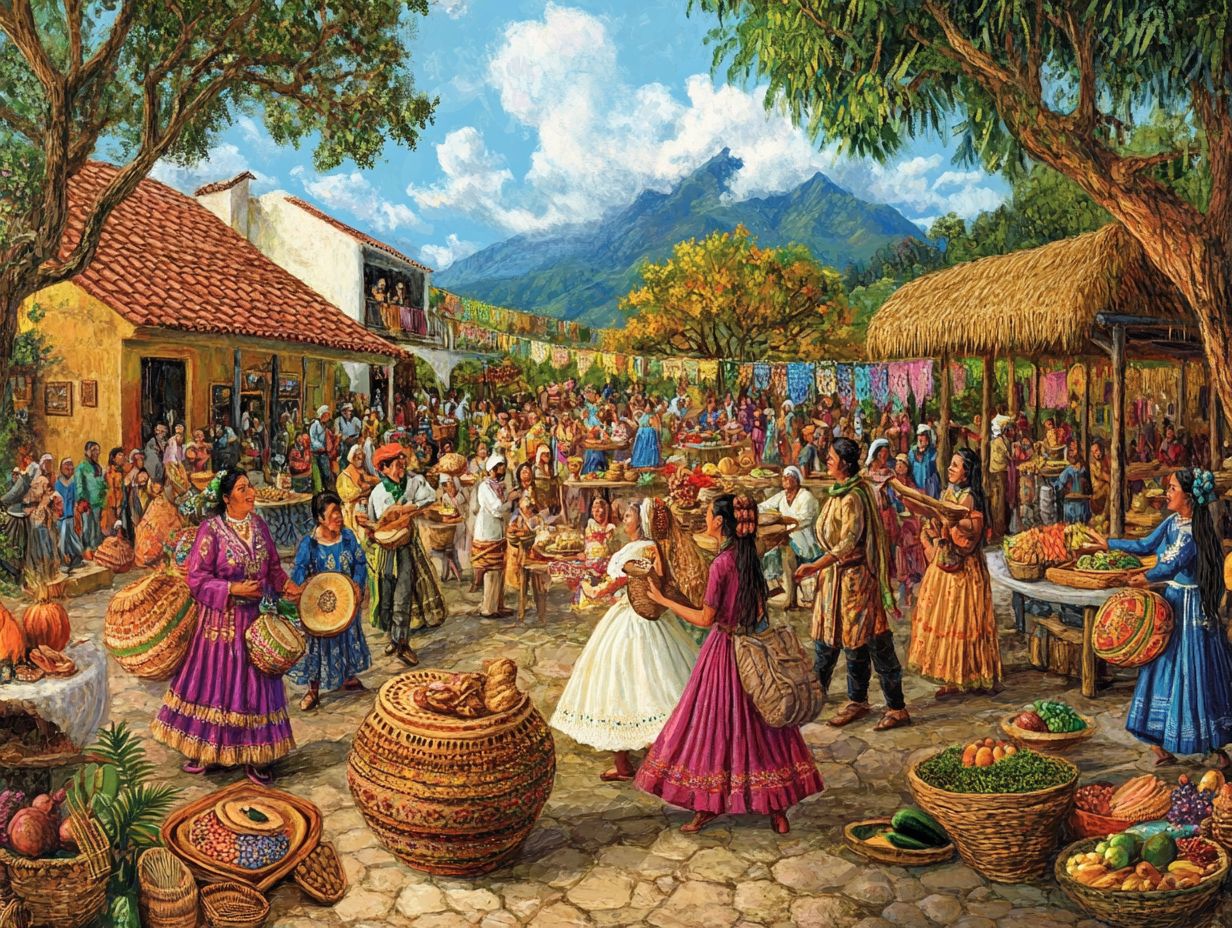
Cultural sensitivity means recognizing and respecting the diverse values, beliefs, and practices among different cultures. This understanding is crucial for fostering harmonious relationships in today s interconnected world.
Consider a workplace setting. By acknowledging the importance of different cultural holidays, you can cultivate camaraderie among colleagues and create an inclusive environment where everyone feels valued.
In cross-cultural dialogues, being aware of varying communication styles like directness versus indirectness can help avoid misunderstandings and facilitate respectful exchanges.
By embracing cultural sensitivity, you enhance your social interactions and demonstrate profound respect for the rich tapestry of traditions that contribute to our global community.
What local customs are you excited to explore on your next adventure?
Common Customs Around the World
Common customs across the globe vary greatly and showcase diverse cultures, reflecting the social norms that define each region. Customs include everything from unique greeting rituals to fun dining practices!
As a traveler, grasping these customs is essential. It enables you to navigate social situations with finesse and engage in interactions that are both respectful and meaningful.
Each custom, whether it s the subtleties of nonverbal communication or the intricacies of gift-giving, reveals valuable insights into the values and traditions of diverse cultures. Understanding these customs ultimately enhances your travel experience.
Researching Local Customs before Traveling
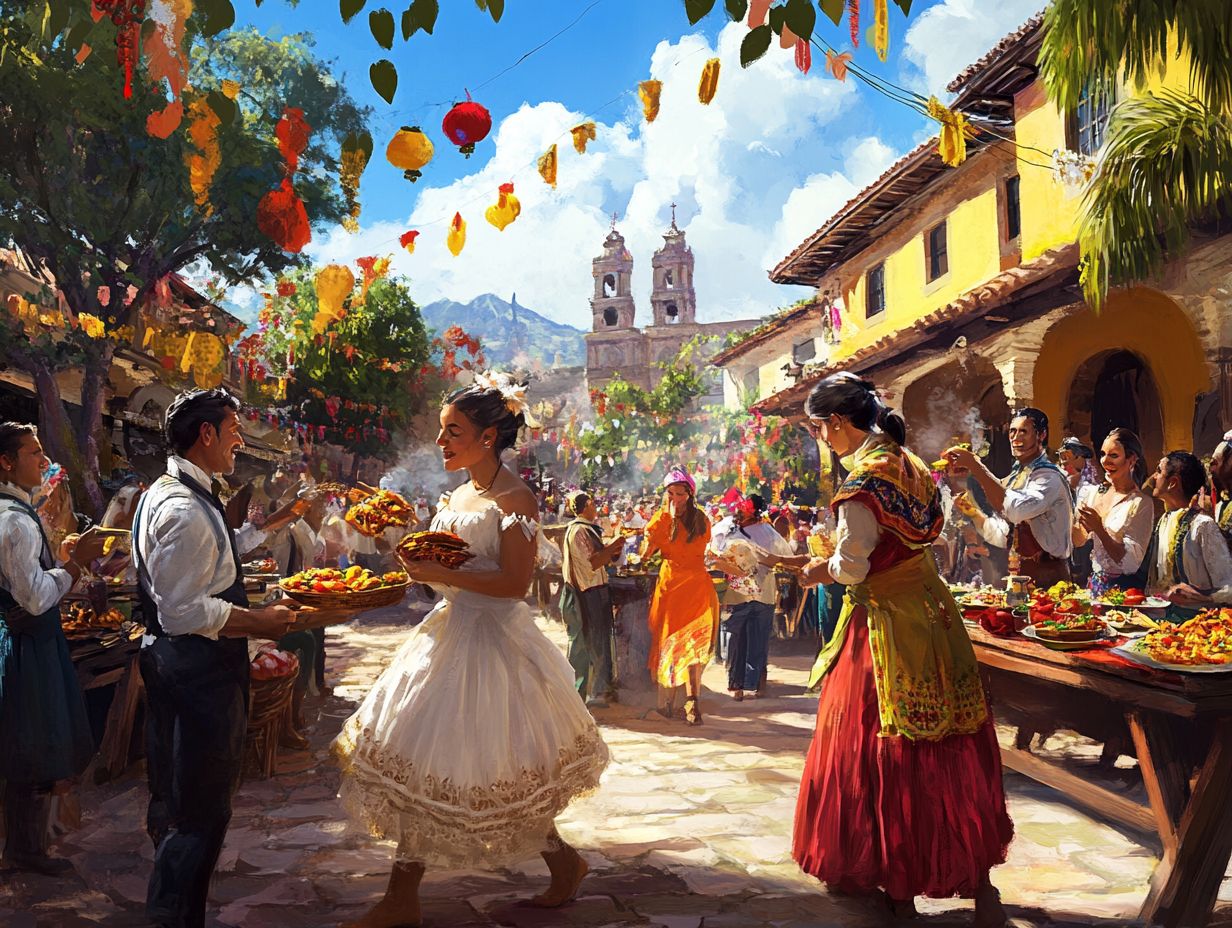
Researching local customs before you travel is crucial for gaining cultural knowledge. This preparation significantly enhances your overall travel experience.
By utilizing online resources and diving into etiquette research, you can uncover valuable insights into the cultural practices of your destination. This proactive approach enables you to adapt your behavior and embrace diverse cultures with confidence.
Greetings and Gestures
Greetings and gestures play a crucial role in social interactions, varying significantly across cultures and often conveying meanings that go beyond mere words.
In Japan, for example, a subtle bow serves as a traditional greeting, embodying respect and humility. In many Western cultures, a firm handshake signals confidence and equality. Meanwhile, in Italy, lively gestures like cheek kisses radiate warmth and familiarity.
Nonverbal cues reflect hierarchy as well. In some Asian cultures, the depth of a bow increases when addressing someone of higher social standing. These nuances foster connections and offer a glimpse into the values and attitudes of a society.
Dining Etiquette
Dining etiquette involves the accepted way to behave in social situations, shaping your dining experiences across various cultures.
These practices differ remarkably from one culture to another. For instance, in Japan, you ll find it customary to say “Itadakimasu” before a meal, expressing gratitude for the food. In Italy, sharing food becomes an essential part of communal dining, fostering a sense of togetherness.
In Middle Eastern cultures, food is often enjoyed with the right hand only, underscoring respect and cleanliness. By understanding these nuances, you can elevate your dining experience and encourage meaningful connections.
Tools and Resources for Learning
Numerous tools and resources are available for exploring local customs:
- Online platforms
- Etiquette training workshops
- Cultural exchange programs
- Language learning apps like Duolingo and Babbel
- Websites such as Culture Trip
These resources deepen your understanding and help you forge meaningful connections with the people and places you encounter during your travels. By leveraging these tools, you can cultivate a sense of cultural fluency, leading to richer experiences.
Don’t miss the chance to connect meaningfully with locals! Start researching local customs now to enhance your next travel adventure.
Adapting to Local Customs
Adapting to local customs is an essential skill for any traveler. It helps you navigate cultural differences and engage in respectful interactions with local communities. It requires a good understanding and a willingness to adjust your behavior based on the cultural context, fostering goodwill and enhancing your social skills.
By being mindful of the small details that define each unique culture, you can craft enriching experiences that promote mutual respect and understanding, ultimately deepening your connection to the places you explore!
Navigating cultural differences can be quite the challenge, but with the right tips and strategies, you can significantly enhance your cultural understanding and refine your social skills.
By observing locals and paying attention to their social cues and communication styles, you gain invaluable insights into the intricacies of their culture. Adjusting your behavior to align with the context not only shows respect but also demonstrates your willingness to embrace new customs.
Asking open-ended questions is also important; this not only invites dialogue but also fosters genuine connections. Engaging in these practices enriches your personal interactions and helps build lasting relationships. This ultimately leads to a deeper understanding of different cultures, making you more comfortable and knowledgeable about their customs and practices.
Frequently Asked Questions
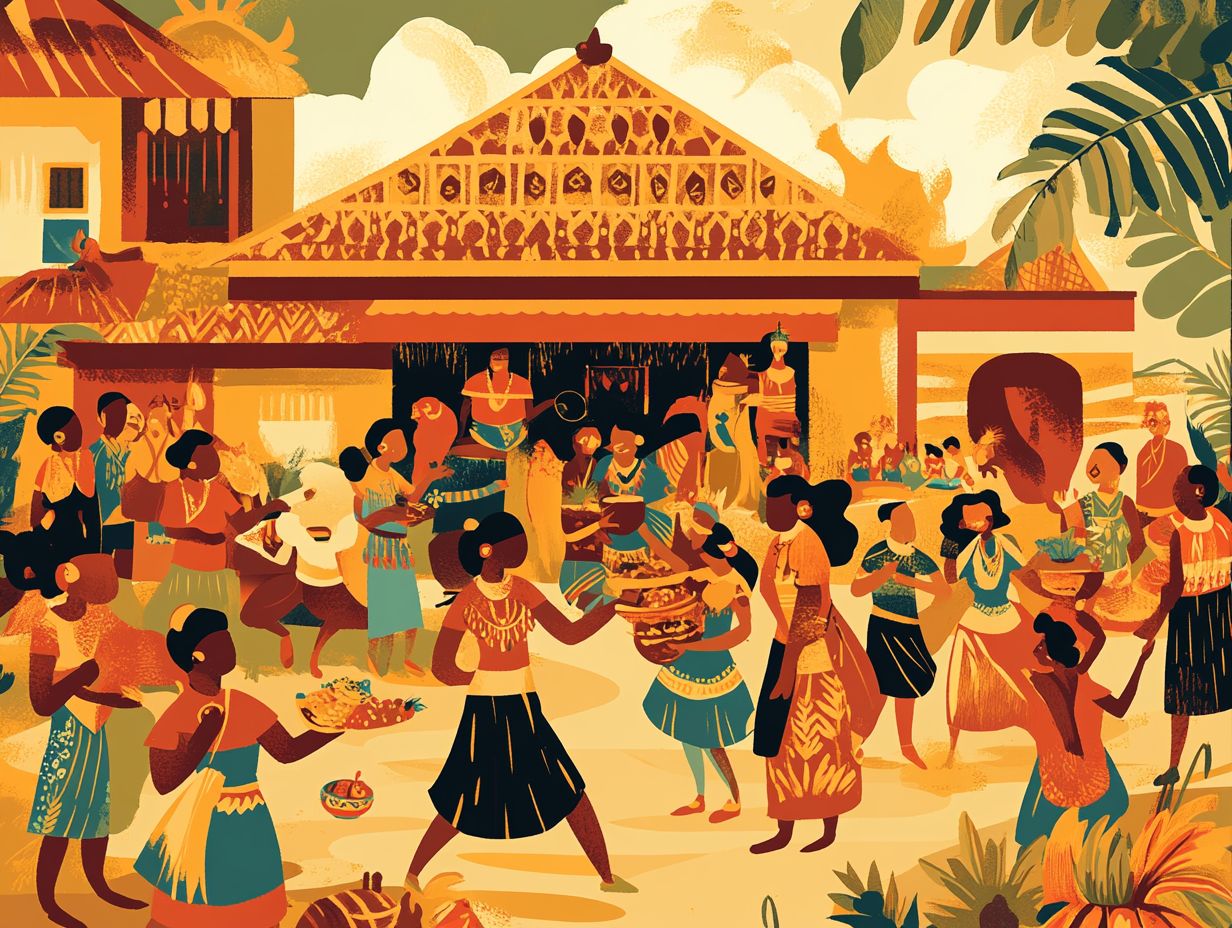
What Should I Know About Local Customs?
Local customs refer to the traditional practices, beliefs, and behaviors of a specific culture or community. It is important to be aware of these customs when traveling to a new place to avoid any cultural faux pas or misunderstandings.
Why is it important to know about local customs?
Knowing about local customs shows respect and appreciation for the culture of the place you are visiting. Additionally, understanding local work culture helps you grasp the social norms and avoid offending anyone unintentionally.
How can I learn about the local customs?
Researching online, talking to locals, and reading travel guides are some ways to learn about the local customs of a place. Additionally, it’s important to understand local laws to ensure a smooth experience. You can also observe the behavior of the locals and ask for advice from your hotel or tour guide.
What are some common local customs that I should be aware of?
Some common local customs include greetings, table manners, dress codes, and religious practices. For example, in some cultures, it is customary to remove your shoes before entering a home or religious site.
Are there any customs that I should avoid?
Avoiding customs that are considered disrespectful or offensive is important. For example, in some cultures, it is considered rude to touch someone’s head, point your feet towards someone, or show the soles of your feet.
What should I do if I unintentionally offend someone with my actions?
If you offend someone, apologize right away! A sincere apology can quickly mend misunderstandings. Explain that you were not aware of the custom, and showing genuine interest and willingness to learn can help diffuse the situation.
So get out there and start learning about the wonderful customs of the places you visit!

